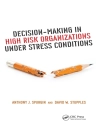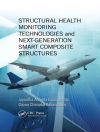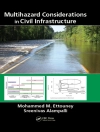The European People’s Party, the largest political party in Europe, has roots that run deep in history. Founded in 1976 as a Christian Democratic federation, the European People’s Party is now a strong centre-right movement and a leading European political family. It has member parties in almost all European countries, and it is very well represented in the institutions of the European Union.
This book tells the story of the European People’s Party: why it was founded, how it is currently organised and what its guiding ideas, values and principles are. It gives an up-to-date account of the party’s contribution to European integration, its work with its member parties and its central role in organising the centre-right in Europe. Above all, this book is for everyone who wants to know what a European-level political party looks like, how it is structured and how it acts.
Jadual kandungan
Origins and Development: Paving the Way: The SIPDIC, NEI and EUCD.- Founding the EPP.- Rapprochement Towards Conservative and Other Like-minded Parties.- Eastward Enlargement.- Merger with the EUCD and EDU.- Party Organisation: The Congress.- Political Assembly and Presidency.- Summit.- The General Secretariat.- Working Groups and Member Associations.- Statute and Financing.- Centre for European Studies.- The EPP’s Relationship to the Group in the European Parliament.- Party Programme: Programmatic Profile.- Annexes.- Chronology.
Mengenai Pengarang
Thomas Jansen was Secretary General of the European People’s Party (EPP) and the European Union of Christian Democrats (EUCD) between 1983 and 1994. Before he took up this position, he had been head of the Rome office of the Konrad Adenauer Foundation. After serving as Secretary General, Jansen worked in the Forward Studies Unit of the European Commission. Before his retirement in 2004, he served as head of the Office of the President of the European Economic and Social Committee (EESC).
Steven Van Hecke is a Senior Research Fellow at the Political Science Department of the University of Antwerp and at the KADOC Centre of Religion, Culture and Society of the Katholieke Universiteit Leuven. He teaches comparative and European Union politics. His area of research is European integration and political parties, and he has also published on transnational party federations.












